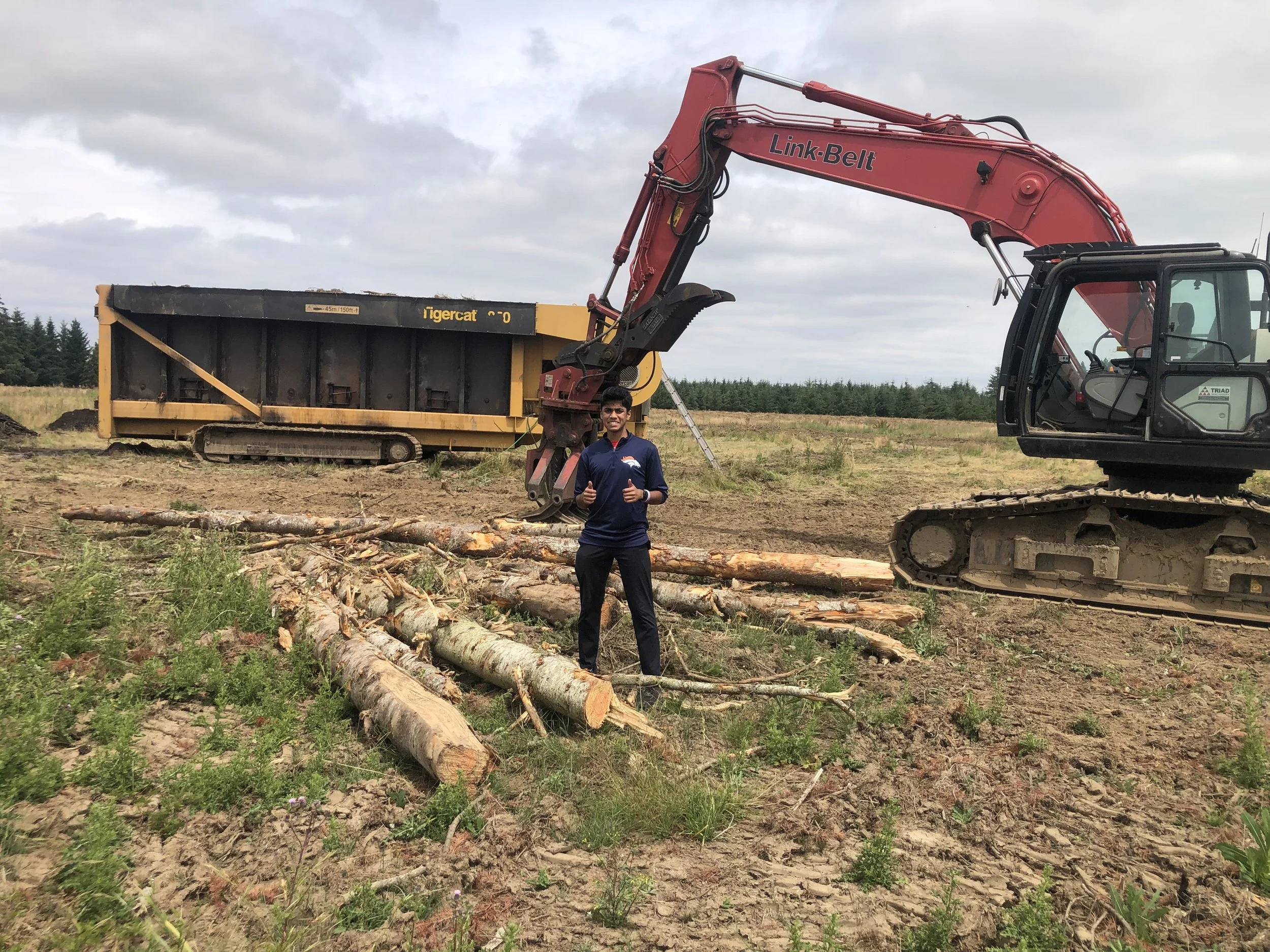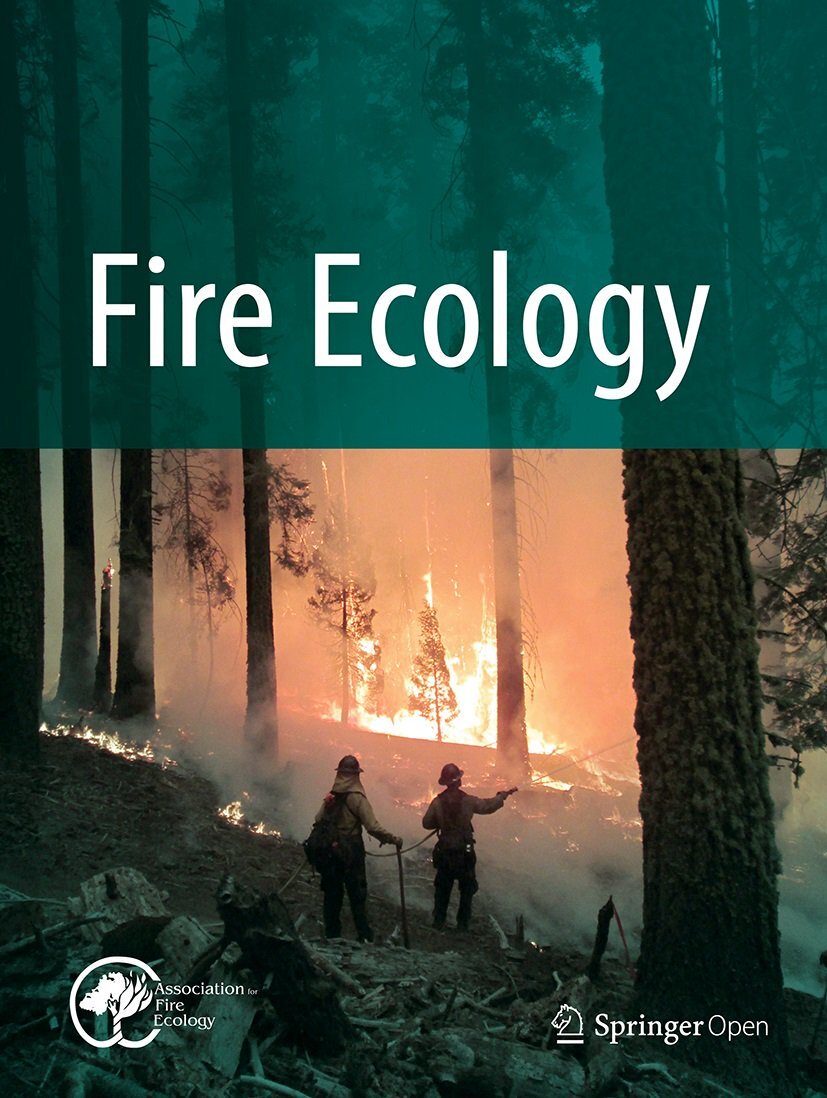Promoting Fire Ecology Research, Education, and Management
The Association for Fire Ecology is an international organization dedicated to improving the knowledge and use of fire in land management. We are scientists, educators, students, managers, practitioners, policymakers, and interested citizens helping to shape the emerging profession and growing field of fire ecology.
AFE news
Join us for #FireCon2025 this fall!
The 11th International Fire Ecology and Management Congress will be held in New Orleans, Louisiana from December 2-6, 2025 with workshops, field trips, and 3 full days of presentations, discussion groups, and networking opportunities.
Applications are now being accepted for the 2025 professional and academic wildland fire certification program.
The 2026 Joint Fire Science Program Funding Announcements are now open and close September 18th, 2025.
AFE's Mentoring Futures Program cultivates the future of wildland fire and resource conservation by investing in future leaders. The application due date for the 5th year of this program has been extended to June 25th.
Proposals will be accepted for special sessions, workshops and trainings, and fire circle discussion groups until May 15th, 2025. Submit yours today and we’ll see you at the 11th International Fire Ecology and Management Congress 2025!
Fire CAFÉ webinars are 1 hour, online discussions hosted by the Association for Fire Ecology. We are accepting proposals now!
We are dedicated to supporting the wildland fire community and making it clear that the global fire crisis will not be solved by lack of funding, resources, or people. Click to read AFE’s statement on recent US federal actions.
Register for Tall Timbers FREE smoke course for two Category 1 Continuing Education Credits
Congratulations to the individuals who were certified in 2024 through AFE’s Wildland Fire Professional Certification Program!
fire ecology Journal
Upcoming EVENTs
Save the date for the 11th International Fire Ecology and Management Congress in New Orleans, Louisiana!
SAFE Chapter News
Read AFE’s interview with Sohan Govindaraju, a high school student researcher who developed a model to optimize camera placement for early detection of wildfires.
AFE is pleased to award two students with the Wayne Harrison Memorial Scholarship in 2025.
In Spring 2025, the Texas Tech University SAFE chapter successfully conducted a hands-on one-day chainsaw training session with a chainsaw and two pairs of chaps that were purchased with funds provided by the national SAFE organization.
LATEST JOB POSTINGS
Sublette County, Wyoming, is seeking a full-time Wildland Urban Interface (WUI) Mitigation Coordinator “to lead efforts in reducing wildfire risks, fostering community safety, improving community preparedness, promoting ecological health and enhancing the resilience of forests, rangelands, and watersheds.”
The National Park Service is seeking Lead Wildland Firefighters for Crater Lake National Park, North Cascades National Park, and Yosemite National Park.
The Southeastern Grasslands Institute at Austin Peay State University in Clarksville, TN is seeking a Middle Tennessee Grasslands Coordinator to conduct “on-the-ground work in grasslands and coordination of broader efforts… and grant-writing and report writing to help secure future funding to support this position and to grow additional programming/staffing needs in the Middle TN region.”
The Research Corporation of the University of Hawai’i, the Pacific Cooperative Studies Unit, and the Mauna Kahalawai Watershed Partnership are seeking a Wildfire Risk Reduction Coordinator to help “reduce landscape level watershed threats from wildfire within and around the 50,000-acre watershed project area.”
afe podcast: Fire Ecology Chats
George Jensen, Benjamin Knapp, and Jeffery Cannon discuss how understanding structural complexity enhances understanding of the ecology and restoration of fire-maintained ecosystems.
Shu Li and Robert York discuss this systematic, long-term analysis of escaped prescribed burns in California.























An article recently published in Fire Ecology examines using herbivory as a supplement to prescribed fire in areas with limitations.